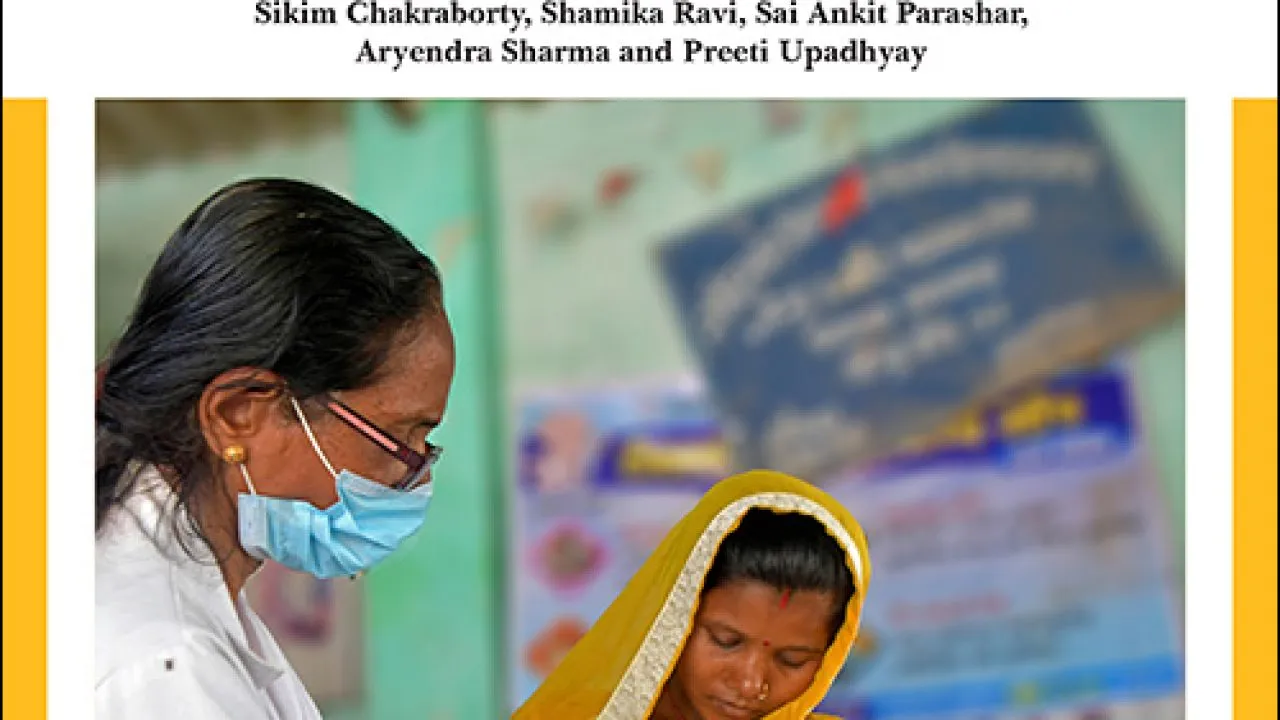Challenges in Early Intervention for Maternal Health
 According to a government bulletin on maternal mortality for 2018-2020, the national maternal mortality ratio (MMR) is 97 per 100,000 live births. The ratio for Madhya Pradesh, the state with the second highest after Assam, is at 173. This report studies the experience of 15 districts in Madhya Pradesh in utilising digital-health tools to improve outcomes in maternal health.
According to a government bulletin on maternal mortality for 2018-2020, the national maternal mortality ratio (MMR) is 97 per 100,000 live births. The ratio for Madhya Pradesh, the state with the second highest after Assam, is at 173. This report studies the experience of 15 districts in Madhya Pradesh in utilising digital-health tools to improve outcomes in maternal health.
In 2013, the Government of India established the National Health Mission (NHM), subsuming the National Rural Health Mission (NRHM), to hasten progress in improving healthcare in the country’s rural districts. Since then, frontline rural health workers have played an important role in the provision of healthcare, including maternal and child health. Several studies have demonstrated that frontline health workers such as Accredited Social Health Activists (ASHA), Auxiliary Nurse Midwives (ANM), and Anganwadi workers (AWW) are key to better outcomes in maternal and child health. They are vital, for example, in promoting reproductive health and family planning services. To be sure, however, other analysts have raised concerns about their performance and accountability.These analysts say, for instance, that ANMs and ASHAs may not be capable of recognising the link between nulliparity (when a woman has not had a live birth), and complications during past pregnancies—and how it relates to early registration in the present pregnancy.
The prevention of maternal and infant and child deaths is an urgent imperative, given the health complications that may occur during pregnancy but which could be prevented if addressed in a timely manner. For instance, the first and most important step in identifying High Risk Pregnancies (HRP) is the early registration of pregnant women in the public health system. In this regard, the Madhya Pradesh government in 2019 rolled out a digital Reproductive and Child Health (RCH) platform, Auxiliary Nurse Midwife On-Line (ANMOL), to fast-track the on-boarding of identified pregnant women. As soon as a pregnancy is tested, the woman is registered in the ANMOL app. The platform is then used to track the pregnant woman and provide her the required four antenatal check-ups (ANC)—the first of which ideally takes place in the first trimester—to ensure the safe delivery of the child and identify potential complications.
The road to success is long, however, and the state’s maternal mortality ratio continues to remain high according to reports such as the National Family Health Survey (NFHS) and the Sample Registration System (SRS), and stands at 173. To identify key areas for focused intervention in the next decade, the Government of Madhya Pradesh set up a high-level Task Force in January 2022 for preparing strategies to reduce infant, neonatal, and maternal mortality in the state.
This report investigates the challenges facing frontline health workers in 15 districts in Madhya Pradesh. These impediments are primarily related to early registration of pregnant women. The analysis utilises a mixed research design: the authors collected data and testimonials from health workers from 32 health facilities across the 15 districts. They conducted interviews with key informants, including government officials, frontline health workers, NGOs, and program implementers; analysed mortality levels and trends, the coverage of maternal and child health interventions, and equity—the latter, using data from sources such as Sample Registration System and National Family Health Survey. Data on health services and systems were also analysed using the state’s Reproductive and Child Health portal.
Initial interventions from the state health department focus on schemes for maternity assistance. The Mukhyamantri Prashruti Sahayta Yojana (MPSY), which provides financial assistance to pregnant women of labourer families belonging to Below Poverty Line (BPL) households was modified in July 2022 to encourage more pregnant women to register and undergo an ANC check-up in the first trimester. In case of non-registration in the first trimester due to any reason, beneficiaries now have the option to register after one month on the recommendation of the Block Medical Officer (BMO. Additionally, Ayushman empanelled facility benefits will also be available for high-risk pregnancy cases in private hospitals. Other changes include an amount of INR 1,400 for beneficiaries from rural areas from Janani Suraksha Yojana (JSY) and INR 10,600 from MPSY. For urban districts, the benefits are INR 1,000 from JSY and INR 11,000 from PSY. In the event of the newborn’s death within a few hours after birth, or if early breastfeeding and vaccination are not possible, the beneficiary will still be eligible for post-delivery financial assistance.









